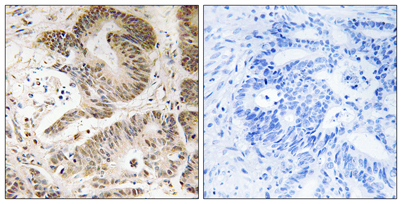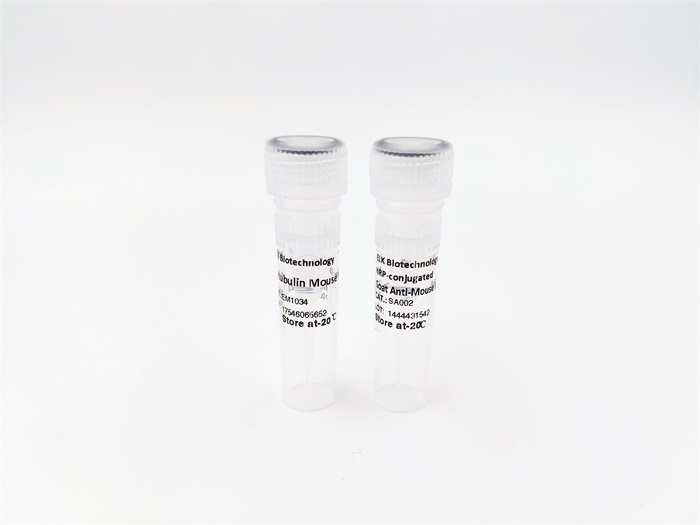| Product name: |
PI 3-kinase p101 rabbit pAb |
| Reactivity: |
Human;Mouse |
| Alternative Names: |
PIK3R5; Phosphoinositide 3-kinase regulatory subunit 5; PI3-kinase regulatory subunit 5; PI3-kinase p101 subunit; Phosphatidylinositol 4; 5-bisphosphate 3-kinase regulatory subunit; PtdIns-3-kinase regulatory subunit; Protein FOAP-2; PtdIns- |
| Source: |
Rabbit |
| Dilutions: |
Western Blot: 1/500 - 1/2000. Immunohistochemistry: 1/100 - 1/300. ELISA: 1/20000. Not yet tested in other applications. |
| Immunogen: |
The antiserum was produced against synthesized peptide derived from human PIK3R5. AA range:695-744 |
| Storage: |
-20°C/1 year |
| Clonality: |
Polyclonal |
| Isotype: |
IgG |
| Concentration: |
1 mg/ml |
| Observed Band: |
100kD |
| GeneID: |
23533 |
| Human Swiss-Prot No: |
Q8WYR1 |
| Cellular localization: |
Nucleus . Cytoplasm . Cell membrane ; Peripheral membrane protein . Predominantly localized in the nucleus in absence of PIK3CG/p120. Colocalizes with PIK3CG/p120 in the cytoplasm. Translocated to the plasma membrane in a beta-gamma G protein-dependent manner. . |
| Background: |
Phosphatidylinositol 3-kinases (PI3Ks) phosphorylate the inositol ring of phosphatidylinositol at the 3-prime position, and play important roles in cell growth, proliferation, differentiation, motility, survival and intracellular trafficking. The PI3Ks are divided into three classes: I, II and III, and only the class I PI3Ks are involved in oncogenesis. This gene encodes the 101 kD regulatory subunit of the class I PI3K gamma complex, which is a dimeric enzyme, consisting of a 110 kD catalytic subunit gamma and a regulatory subunit of either 55, 87 or 101 kD. This protein recruits the catalytic subunit from the cytosol to the plasma membrane through high-affinity interaction with G-beta-gamma proteins. Multiple alternatively spliced transcript variants encoding two distinct isoforms have been found. [provided by RefSeq, Oct 2011], |








 Manual
Manual